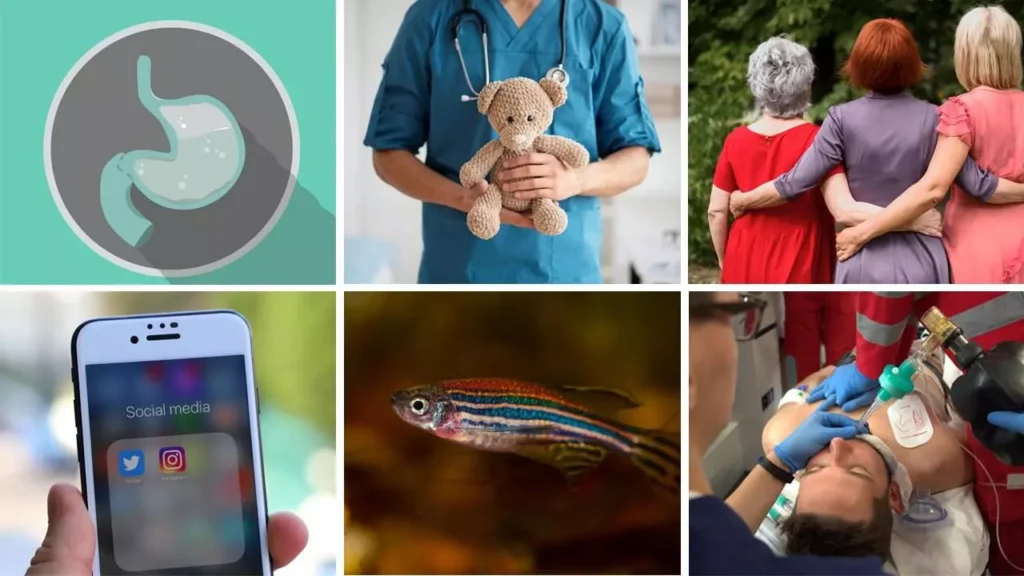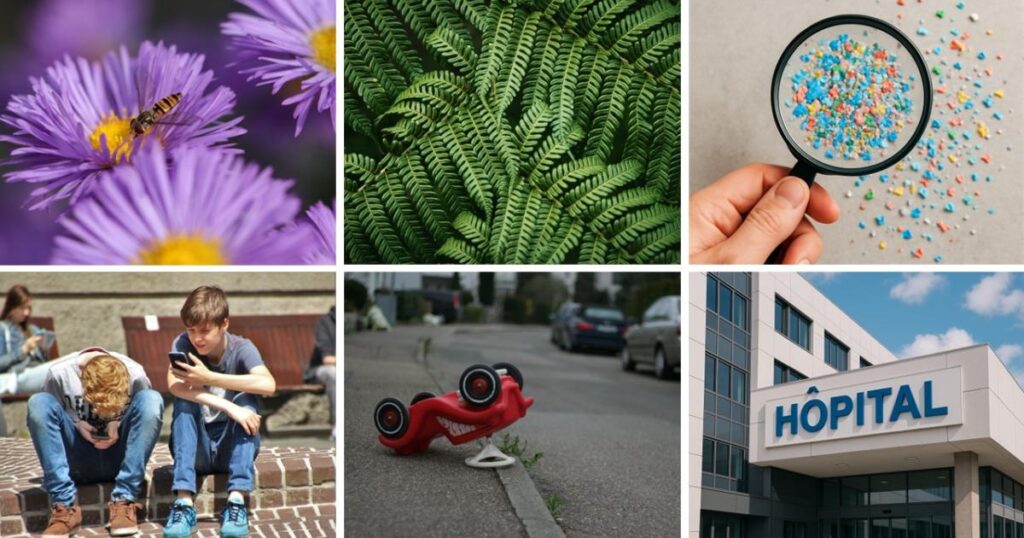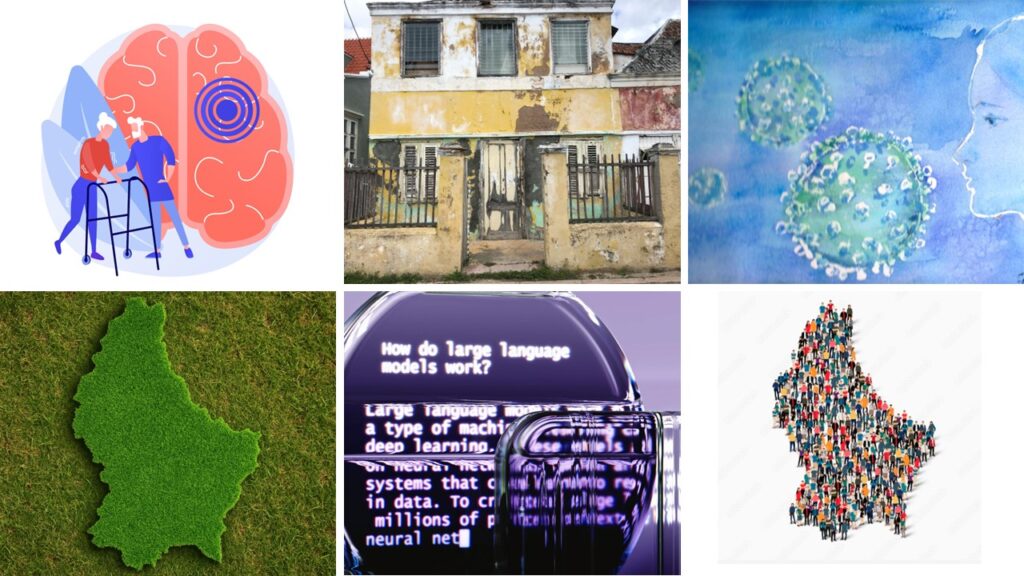10 selected Research Luxembourg results – September 2025
16 October 2025

Luxembourg News in Science & Research
Can we soon grow wood in a laboratory? And how can we improve the efficiency of solar panels? Here are the latest scientific news from Luxembourg.
Pexels; Pixabay; Flickr; Freepik
This article was originally in French and German on science.lu
Lab-grown wood could revolutionize industry in the future
Luxembourg Institute of Science and Technology (LIST)
The BRANCH project aims to develop the first prototype of wood grown from tree plant cells produced in bioreactors. Led by the start-up New Dawn Bio (NDB) in partnership with LIST, this research explores how bioengineered wood could offer a sustainable alternative to logging, while opening up new opportunities for high-end industries.
How does it work?
Using plant cell culture technologies, researchers grow tree stem cells exponentially and transform them into woody tissue directly shaped into finished products, such as tabletops.
Cultivated wood could become a sustainable material for the furniture and design industries, and eventually even be extended to cost-sensitive sectors such as construction.
New Dawn Bio is a Dutch start-up developing the world’s first lab-grown wood.
Press Release
Tandem Solar Cells: Capturing More Sunlight to Boost Electricity Production
University of Luxembourg (FSTM)
Professor Susanne Siebentritt and her team at the University of Luxembourg are developing a new generation of solar cells. Their tandem cells are extremely thin and highly efficient, converting more sunlight into electricity than traditional panels.
Today’s conventional solar cells can convert less than 25% of incoming sunlight into electricity.
So how do tandem solar cells work? By stacking two layers of semiconductors, each capturing different parts of the solar spectrum, they combine their energy to generate more electricity than a single layer could.
The solar cells studied by Prof. Siebentritt’s team are especially promising because they maintain their efficiency in real-world conditions for decades.
Open-Access Publication
New Immunotherapy Target to Counter an Incurable Leukemia
Luxemburg Institute of Health (LIH)
In a new study published in the prestigious journal “Nature Communications”, researchers at the Luxembourg Institute of Health (LIH), in collaboration with the German Cancer Research Center (DKFZ), studied the immune system of patients suffering from chronic lymphocytic leukemia (CLL) — an incurable blood cancer. They discovered several mechanisms that weaken the body’s natural defenses against the tumor.
More specifically, the scientists identified galectin-9, a protein that impairs the function of T cells, which are key players in the body’s anticancer immune response.
Antibodies blocking this protein were shown to slow down the progression of CLL in animal models, suggesting a promising therapeutic approach, especially for aggressive forms of the disease.
These findings pave the way for new strategies to strengthen immune responses and improve treatments against CLL — the most common blood cancer among adults in Europe, which often resists existing immunotherapies.
Press Release
An Interactive Map to Explore Luxembourg’s Entrepreneurial Ecosystem
University of Luxembourg (FDEF)
The House of Entrepreneurship and the University of Luxembourg have teamed up in to create an interactive map of the country’s entrepreneurship and innovation ecosystem.
The map allows users to navigate through different stages of entrepreneurship — Ideate, Test & Plan, and Launch & Grow. It can also be customized to show specific types of resources, such as R&D, incubation, funding, internationalization, or commerce, and can be filtered by themes or keywords for a clearer overview.
Already used as a teaching tool in the university’s Master’s program, the map helps students understand the key players and initiatives that make up Luxembourg’s start-up and innovation network.
Press release
New Therapeutic Strategy to Combat Multidrug-Resistant Bacteria (Superbugs)
Luxemburg Institute of Health (LIH)
Some bacteria are becoming so resistant to antibiotics that they’re almost impossible to treat. One of the toughest is Pseudomonas aeruginosa, which can cause serious infections, especially in people who are already sick or have weak immune systems.
Researchers at the Luxembourg Institute of Health have published a new study published in the translational journal “eBiomedicine” which found a new way to fight back — by helping the body’s own immune system do the job.
They designed special antibody-based molecules called CoMiX, which act like smart targets. These molecules alert the immune system to the bacteria and help it attack and destroy them quickly — without harming healthy cells.
Even better, when these CoMiX molecules are used together with antibiotics, they make the drugs work better and reduce the chance of new resistance developing.
This breakthrough could become a powerful new weapon in the global fight against antibiotic-resistant superbugs.
Press Release
A New Weapon Against Treatment-Resistant Breast Cancer
Luxemburg Institute of Health (LIH), University of Luxembourg
Breast cancers known as HER2-positive have long benefited from targeted treatments such as trastuzumab and pertuzumab. But over time, some tumors stop responding to these therapies.
To tackle this problem, researchers from the Luxembourg Institute of Health and the University of Luxembourg are developing an innovative new approach that harnesses the body’s own immune system — specifically a defense mechanism called the complement system. This system helps the body recognize and destroy harmful or abnormal cells.
The scientists created two new molecules, CoMiX-FHR4 and CoMiX-Fc, which attach to HER2-positive cancer cells and activate the complement system to help eliminate them.
In laboratory tests on mice, these treatments slowed tumor growth, even in cancers that no longer responded to standard drugs — opening the door to a promising new therapy for resistant forms of breast cancer.
AI helps diagnose anal cancer
Laboratoire National de Santé (LNS)
In a new study, researchers at the National Health Laboratory (LNS) have compared two methods for analyzing anal smears — a medical test used to spot abnormal cells that could lead to anal cancer.
They tested the traditional microscope method against a modern digital imaging approach that uses artificial intelligence (AI) to help identify suspicious cells.
The AI-assisted digital method detected more serious lesions than the traditional one, which could help doctors find anal cancer earlier. However, the two methods sometimes gave different results for milder lesions.
The study had some limitations — only a small number of cases were analyzed, just one specialist reviewed the digital images, and no biopsies were done to confirm the findings.
Still, the results are promising: using AI with digital pathology could become a valuable tool to improve the early detection of precancerous anal lesions. More research is needed to confirm the benefits.
Press release
A Comprehensive Overview of Maternal and Newborn Health in Luxembourg
Luxemburg Institute of Health (LIH), Directorate of Health
The Directorate of Health and the Luxembourg Institute of Health (LIH) have released the triennial report: “Perinatal Health Surveillance in Luxembourg: 2020–2022.” The publication provides a comprehensive overview of the health of mothers and newborns in Luxembourg.
Between 2020 and 2022, the number of births continued to rise, although a slight decrease (-0.9%) was observed in 2022 compared to 2021. However, this increase does not fully match population growth: the birth rate declined from 11.6‰ in 2018 to 10.5‰ in 2021, following a trend seen in neighboring countries. (The birth rate represents the number of live births per 1,000 people in a given period.)
For the first time since 2011, the overall caesarean section rate in Luxembourg fell below 30% over the three years studied — reflecting long-term efforts to reduce unnecessary obstetric procedures.
Meanwhile, the episiotomy rate (a surgical cut to aid delivery) continued to drop sharply, falling below 10% in 2022, in line with international medical recommendations.
Press Release
A New AI Model Simulates Complex Biomolecules with Quantum-Level Precision
University of Luxembourg (FSTM)
An international team of researchers — including scientists from the University of Luxembourg — has developed SO3LR, a new tool capable of simulating the behavior of biomolecules with near–quantum mechanical accuracy. Unlike traditional methods, SO3LR can handle large molecular structures of up to 200,000 atoms, making it possible to model proteins, water, and lipid membranes with remarkable detail.
The model combines known physical principles with machine learning and reliable quantum data derived from millions of molecular structures. The result is stable, realistic simulations that are more accurate than traditional approaches — yet fast enough to study highly complex biological systems.
Next steps include expanding SO3LR to cover more types of molecules, incorporating quantum effects of atomic nuclei, and improving reproducibility tools to ensure consistent results across simulations.
Press release
Statistics: Luxembourg in Figures 2025
National Institute of Statistics and Economic Studies (STATEC)
The new edition of “Luxembourg in Figures” provides a statistical overview of the country and Luxembourgish society. The publication gathers data on territory and environment, population and labour market, social conditions, businesses, as well as the economy and public finances. International comparisons help place Luxembourg in context with other EU countries and major world economies.
Some key findings:
- 6,459 children were born in Luxembourg in 2024 ;
- 15.7% of the population was under 15 years old in 2025, and 15.2% was over the age of 65
- Among the adult population: 33.2% are single, 47% married, and 5.3% in a civil union
- The median income per adult is €4,233
- 20.56% of household spending goes to housing, water, electricity, gas, and fuels
Author: Diane Bertel
Editor: Lucie Zeches (FNR) ; Nicolas Stamets (Research Luxembourg)











